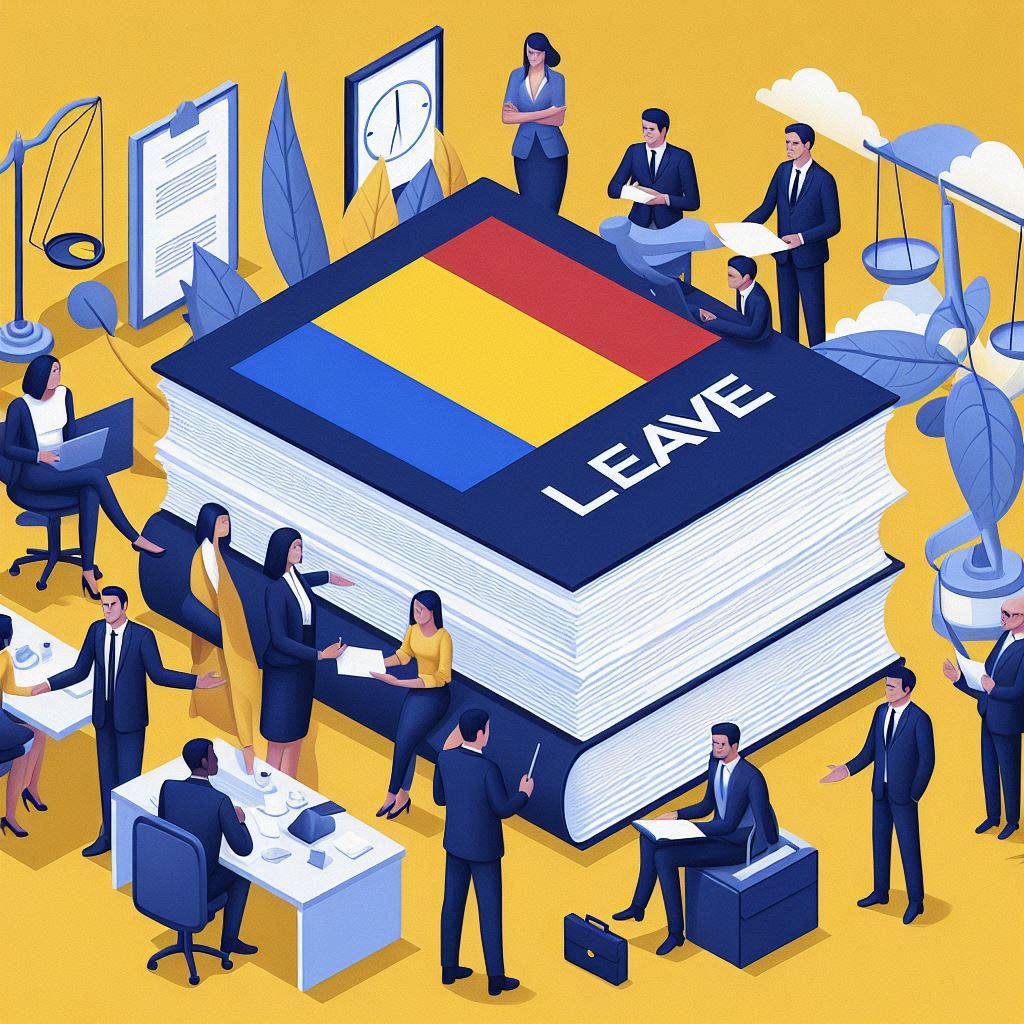From Unpaid Overtime to Unsafe Conditions: A Look at Labor Law Violations in Romania
From Unpaid Overtime to Unsafe Conditions: A Look at Labor Law Violations in Romania
In a country aiming for economic growth, labor law violations in Romania are a big issue.
Are Romanian workers getting a fair deal?
Many employees deal with unpaid overtime and unsafe working conditions.
These challenges push the limits of what’s allowed in the workplace in Romania.
Romania’s Labor Code is meant to protect workers’ rights.
But, there are still breaches.
Key Takeaways
- Romania’s labor laws aim to protect workers, but many violations still happen.
- Workers often deal with unpaid overtime, dangerous jobs, discrimination, and limits on union activities.
- Employers sometimes use loopholes or ignore laws, putting workers at risk.
- To fix these issues, we need stronger laws, better worker education, and more openness.
- Supporting worker rights and promoting fair workplaces is key for Romania’s growth.
Introduction to Labor Law Violations in Romania
Romania’s Labor Code sets clear rules for workers and employers.
It covers wages, hours, safety, and union rights.
Yet, many workers still face issues like unpaid overtime and unsafe conditions.
These problems include discrimination and breaches of collective bargaining rights.
Such violations are a big concern in Romania.
Overview of Employee Rights and Regulations
Romanian labor laws aim to protect workers.
They ensure a fair wage, reasonable hours, and a safe workplace.
Employers must respect workers’ union rights and their right to bargain collectively.
Importance of Addressing Labor Law Violations
It’s vital to tackle workers’ rights violations, overtime pay violations, and health and safety violations.
This protects vulnerable workers and supports fair business practices.
Not doing so can lead to unfair dismissals and safety risks.
It can also increase employee discrimination and anti-union practices.
| Violation Type | Prevalence in Romania | Potential Consequences |
|---|---|---|
| Overtime Compensation | Widespread issues with overtime pay violations | Exploitation of workers, wage garnishment issues, and work permit violations |
| Workplace Safety | Frequent health and safety violations, especially in high-risk industries | Workplace safety hazards, occupational injuries, and increased liability for employers |
| Union Rights | Challenges in exercising collective bargaining rights and union activities | Anti-union practices, limited worker representation, and strained labor-management relations |
Fixing these labor law issues is key to a fair work environment in Romania.
It protects workers and helps the economy grow sustainably.
Employment Laws and Contracts in Romania
Romania’s Labor Code sets the rules for work, including contract types and age limits.
Employers must hire with written contracts in Romanian and check health before hiring.
Breaking these rules can end contracts and lead to fines.
It’s key for employers and employees to know the laws on hiring and contracts.
This helps avoid breaking labor laws.
Types of Employment Agreements and Contract Requirements
In Romania, most jobs have open-ended contracts.
Fixed-term contracts can be renewed up to three times, for a total of 36 months.
There’s a 90-day trial period for most jobs, 120 days for managers, and 30 days for disabled workers.
Ending a job in Romania requires a notice period.
Employers must give 20 working days’ notice, while employees get 20 to 45 days, depending on their job.
Employers can skip the notice if an employee leaves early.
Minimum Age and Documentation for Employment
The Labor Code says you must be 16 to start working, with some exceptions for 15-year-olds.
Employers must check all documents, like ID cards and health checks, before hiring.
Not following these laws can lead to losing a job and big fines.
It’s vital to know and follow the Romanian labor code, employment laws Romania, and workplace regulations when hiring in Romania.
| Employment Agreement Type | Key Characteristics |
|---|---|
| Open-Ended Contract | Standard employment agreement in Romania |
| Fixed-Term Contract | Can be signed consecutively up to 3 times, with a maximum total duration of 36 months |
| Probationary Period | 90 calendar days for standard positions, 120 calendar days for managerial positions, 30 calendar days for disabled persons |
| Termination Notice Periods | Minimum 20 working days for employers, maximum 20 or 45 working days for employees |
Wages, Overtime, and Working Hours in Romania
Romania has set a national minimum wage and higher rates for some jobs like construction and farming.
Employers must pay workers at least the minimum wage and pay for overtime.
But, there are often issues with minimum wage violations, overtime pay, and working hours infractions in Romania.
The minimum monthly salary in Romania is now RON 3,300.
Construction workers get at least RON 4,582, and those in agriculture and the food industry get RON 3,436. These are the minimum wage rules for these sectors.
People usually work 8 hours a day and 40 hours a week in Romania.
They can work up to 48 hours a week, including overtime.
Breaking these working hours rules can lead to wage theft and other fines.
| Minimum Wage Rates in Romania | Sector | Minimum Monthly Gross Base Salary |
|---|---|---|
| General Minimum Wage | All Sectors | RON 3,300 |
| Construction Sector Minimum Wage | Construction | RON 4,582 |
| Agricultural and Food Industry Minimum Wage | Agriculture and Food | RON 3,436 |
Workers should keep an eye on their pay and work hours to follow the rules.
It’s important to report overtime pay violations and other labor law violations in Romania.
Unpaid Overtime: A Prevalent Issue
In Romania, one big issue is unpaid overtime.
Many employers make workers put in more than the legal 48 hours a week without paying them extra.
This is called “wage theft” and takes away workers’ fair pay.
It also goes against the labor laws.

Workers in Romania need to know their rights to overtime pay.
They should stand up if they’re not paid for extra work.
Labor laws say that hourly workers get extra pay for working more than 40 hours a week.
Salaried workers and those paid by piece or commission also get overtime pay.
It’s based on how much they make in a week and the hours they work.
Employers must keep track of all hours worked, including overtime.
Not paying overtime can lead to fines and making workers whole with interest.
There are special rules for overtime pay in Romania, depending on the job or industry.
If there’s a problem with overtime pay, workers can go to the National Labor Inspectorate or court.
It’s important for both employers and workers to follow the labor laws on overtime.
This keeps the workplace fair and open.
Knowing their rights helps workers fight against unpaid overtime Romania and wage theft in Romania.
This way, they protect their pay and help make the labor market fairer.
| Overtime Compensation Requirements in Romania | Details |
|---|---|
| Non-exempt hourly employees | Eligible for overtime pay when working beyond the standard 40-hour work week |
| Salaried employees | Eligible for overtime pay, calculated by determining the weekly salary’s hourly equivalent and applying a 1.5 multiplier for excess hours |
| Piecework employees | Receive overtime pay based on the average hourly rate derived from total weekly earnings divided by total hours worked, multiplied by 1.5 |
| Commission-based employees | Eligible for overtime pay, calculated at a rate of 1.5 times the total earnings for the week divided by total hours worked |
Labor law violations in Romania
Romania faces many labor law problems, not just about wages.
Employers often ignore safety at work, putting workers at risk.
They also wrongly fire people without following the rules.
This hurts workers’ rights and damages trust in the labor system.
The fine for not paying the minimum wage can be from 300 to 2,000 lei.
Fines also apply for stopping or forcing workers to strike.
Employers must make rules and job descriptions for everyone.
If they don’t, they could face fines up to 200,000 lei.
Working without a contract can also lead to big fines.
Not following rules on extra work, rest, night shifts, and job resignations can lead to fines.
If you disagree with a Labor Inspection report, you have 15 days to appeal to court.
| Violation | Fine Range |
|---|---|
| Failure to comply with minimum wage provisions | 300 to 2,000 lei |
| Forcing or preventing employees from participating in strikes | 300 to 1,000 lei |
| Receiving an individual to work without a concluded employment contract | 20,000 to 200,000 lei |
The European Court of Human Rights has also tackled labor law issues in Romania.
In the Moraru vs. Romania case, the ECHR found a violation of human rights. Romania was fined EUR 7,500.
The labor laws in Romania are changing to tackle issues like labor code violations, wrongful termination cases, workplace safety breaches, and health and safety violations.
Making sure everyone follows the rules is crucial for better worker protection and a fairer labor environment.
Unsafe Working Conditions and Occupational Hazards
In Romania, making sure the workplace is safe and healthy is a must for employers.
But, many employers don’t meet these standards.
This leads to workplace accidents and exposure to dangerous materials, putting workers at risk.
Workplace Safety Regulations and Enforcement
The Romanian Labor Code sets clear safety rules for workplaces.
But, making sure these rules are followed is hard.
The Labor Inspectorate checks on workplaces, gives warnings, and can fine those who don’t follow the rules or cause accidents.
Even with these efforts, Romania still faces big problems with occupational safety violations and health and safety breaches.
To fix this, we need to improve workplace checks and make sure employers follow the rules.
| Regulation | Key Requirements |
|---|---|
| Law No. 319 of July 14, 2006 | This law makes sure Romania follows EU safety rules at work. It tells employers to find dangers, check risks, and take steps to prevent accidents. |
| Specific Regulations | These rules focus on dangers like temporary construction sites, work equipment, chemicals, and lifting heavy things. |
| Employer Responsibilities | Employers must train workers, have emergency plans, and make sure the workplace is safe and healthy. |
| Enforcement and Penalties | There are workplace checks, reporting accidents, and fines or penalties for breaking the rules. Repeat offenders can even lose their business license. |
We need to make sure workplace safety regulations are followed.
Employers must be held responsible for occupational safety violations and health and safety breaches.
This is key to solving the ongoing problem of workplace safety violations in Romania.
Employee Discrimination and Unfair Dismissals
Romania’s labor laws say employee discrimination Romania is not allowed in the workplace.
This includes gender, age, ethnicity, and union membership.
Yet, unfair dismissal in Romania and workplace discrimination in Romania still happen.
Workers can face bias from hiring to being fired unfairly.
It’s key to protect their rights for a fair work environment.
Wrongful hiring, unequal treatment, and unfair firing can happen in many ways in Romania, like:
- Job ads or hiring tests that unfairly target certain groups
- Pay or promotion differences because of someone’s race or gender
- Unjust disciplinary actions or firings, especially against certain employees
- Retaliation against those who stand up for their rights or report wrongdoings
People facing employee discrimination Romania and unfair dismissal in Romania can seek help from the National Council for Combating Discrimination and labor courts.
If found guilty, employers could face fines, damages, and have unfair firings reversed.
Creating a workplace where everyone is treated fairly is vital for businesses in Romania.
Companies should check their rules, training, and how to handle complaints.
This ensures they follow the law and treat all workers equally.
Union Rights and Collective Bargaining Challenges
In Romania, the Labor Code protects employees’ right to join trade unions and bargain collectively.
Yet, some employers try to block these rights.
They might stop union activities or refuse to negotiate fairly.
It’s crucial for employees to know their legal rights and stand up for them.
Legal Protections for Union Activities
The Romanian Labor Code lets workers form and join unions without bias. Unions can speak for workers in talks over wages and working conditions. Employers can’t stop these union actions or fire workers for being part of a union.
But, union rights violations Romania and anti-union practices still happen.
Some bosses might try to stop union formation or ignore union reps.
Workers need to watch out for their collective bargaining rights and make employers respect the law.
| Key Facts about Union Rights in Romania |
|---|
| – The Labor Code guarantees the right to form and join trade unions |
| – Unions have the right to represent workers in collective bargaining |
| – Employers are prohibited from interfering with union activities |
| – A minimum of 15 employees are required to establish a union |
| – Unions must represent at least 7% of employees to participate in company-level negotiations |
| – Union representatives are appointed through a 50%+1 employee vote |
| – Collective bargaining coverage is around 36% of the workforce |
Even with laws in place, union rights violations Romania and anti-union practices are still big issues.
Workers must be alert and defend their collective bargaining rights.
They should make sure employers follow the law.
Addressing Labor Law Violations: Legal Recourse and Advocacy
As a Romanian lawyer, we know workers in Romania have ways to fight labor law violations.
They can file complaints with labor inspectors, courts, and other bodies.
This helps workers get the pay they deserve.
Filing complaints and seeking compensation is complex.
But, our team of Romanian lawyers can guide you.
They help with the legal steps, make sure documents are right, and represent you in court.
Navigating the Legal System
Workers facing issues like unpaid overtime, unsafe conditions, or unfair dismissals can file complaints.
They can go to the Labor Inspectorate for help.
This group checks for labor law compliance.
Workers can also go to labor courts for help.
These courts can impose fines and give compensation to those hurt by law breaks.
Our team of Romanian lawyers can help with this process.
Advocating for Employee Rights
There are also groups pushing for better labor protections.
Labor unions and other groups work to make laws stronger.
They raise awareness and push for policy changes.
These efforts are important for protecting workers’ rights.
With more awareness and action, we can make workplaces fairer in Romania.
Working with Romanian lawyers and together, we can fight labor law violations.
| Type of Violation | Potential Penalties |
|---|---|
| Torture | 2-7 years’ imprisonment |
| Torture Resulting in Death | 15-25 years’ imprisonment |
| Inhuman or Degrading Treatment | 1-5 years’ imprisonment |
Conclusion
Romania faces big challenges in protecting employee rights and ensuring workplace compliance with Romanian labor regulations.
There are many unfair labor practices and worker exploitation.
Issues like minimum wage violations, overtime pay disputes, and union rights violations are common.
As Romania meets European labor standards, it’s key to make sure these laws are followed.
This way, Romania can make sure all workers are treated fairly and with respect.
This is important for a strong and fair workplace compliance system.
FAQ
What are the common labor law violations in Romania?
In Romania, common labor law violations include unpaid overtime and unsafe working conditions.
Workers also face discrimination, infringement of union rights, minimum wage violations, and wrongful termination.
How does the Romanian Labor Code protect employee rights?
The Romanian Labor Code protects employees by setting rules for wages, working hours, and safety.
It also covers union representation.
Yet, many workers still face violations of these rules.
What are the requirements for employment contracts and hiring in Romania?
Employers must follow strict rules when hiring in Romania.
They need to have written contracts in Romanian and ensure medical checks.
Breaking these rules can lead to employment agreements being nullified and fines.
How are wages and overtime pay regulated in Romania?
Romania has a national minimum wage and higher rates for some industries.
Employers must pay at least the minimum wage and compensate for overtime.
Underpaying workers and not paying overtime are common issues.
What is the issue of unpaid overtime in Romania?
Unpaid overtime is a big problem in Romania.
Employers often make workers do extra hours without paying them, a practice called “wage theft.”
What other labor law violations are prevalent in Romania?
Romania also faces issues like workplace safety breaches, wrongful terminations, and labor code violations.
How are workplace safety and occupational hazards regulated in Romania?
Employers in Romania must ensure a safe work environment.
But, many don’t meet these standards.
This leads to workplace accidents and exposure to hazardous materials.
What are the labor laws regarding discrimination and unfair dismissals in Romania?
Romania’s laws ban discrimination at work based on gender, age, ethnicity, and union membership.
Yet, unfair hiring, unequal treatment, and wrongful terminations still happen.
How are union rights and collective bargaining protected in Romania?
The Labor Code lets employees form unions and bargain collectively.
But, some employers interfere with these rights.
They may stop union activities or refuse to negotiate fairly.
What recourse do employees have for addressing labor law violations in Romania?
Employees can report violations to labor inspectors, courts, or administrative bodies.
Getting legal advice from Romanian labor lawyers can also help them seek compensation and hold employers accountable.












